Balls.
That delightful saying about men thinking with their nether regions has gained a new meaning. A new study has found an unnerving lot of similarities between men’s brains and the innards of their scrotums.
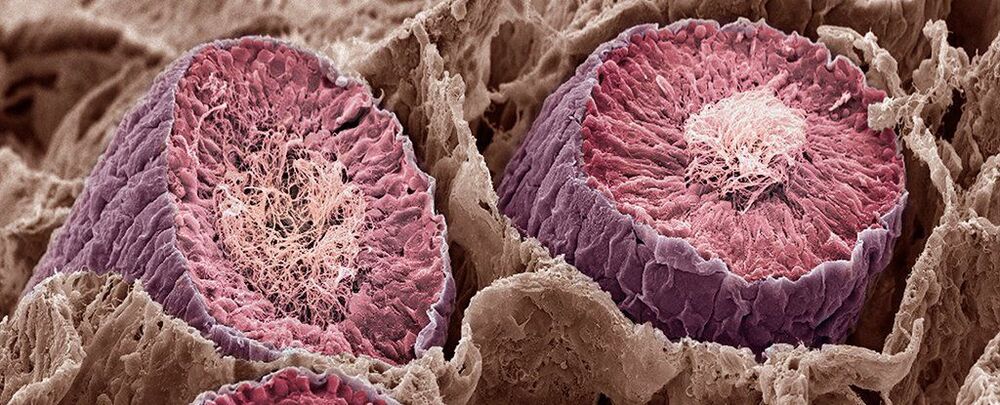

The next time you see a spider crawling around your house, look at the bright side. It’s probably feasting on a bunch of other insects and providing you with free pest control.
A new study released on Tuesday says that spiders eat an estimated 400 to 800 million metric tons of insects every year.
For comparison, the entire human population consumes about 400 million tons of meat and fish every year.
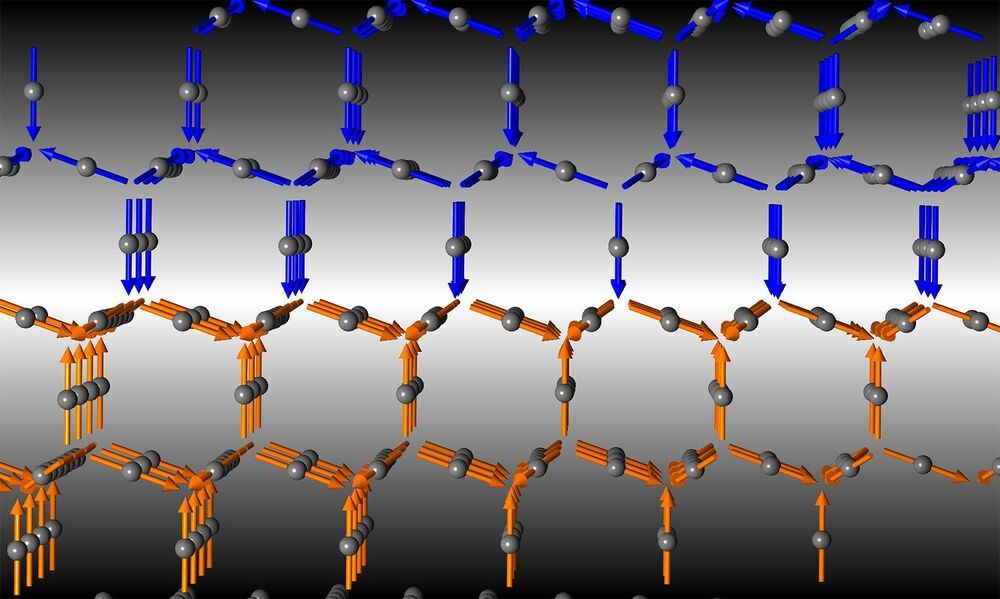
Like all metals, silver, copper, and gold are conductors. Electrons flow across them, carrying heat and electricity. While gold is a good conductor under any conditions, some materials have the property of behaving like metal conductors only if temperatures are high enough; at low temperatures, they act like insulators and do not do a good job of carrying electricity. In other words, these unusual materials go from acting like a chunk of gold to acting like a piece of wood as temperatures are lowered. Physicists have developed theories to explain this so-called metal-insulator transition, but the mechanisms behind the transitions are not always clear.
“In some cases, it is not easy to predict whether a material is a metal or an insulator,” explains Caltech visiting associate Yejun Feng of the Okinawa Institute for Science and Technology Graduate University. “Metals are always good conductors no matter what, but some other so-called apparent metals are insulators for reasons that are not well understood.” Feng has puzzled over this question for at least five years; others on his team, such as collaborator David Mandrus at the University of Tennessee, have thought about the problem for more than two decades.
Now, a new study from Feng and colleagues, published in Nature Communications, offers the cleanest experimental proof yet of a metal-insulator transition theory proposed 70 years ago by physicist John Slater. According to that theory, magnetism, which results when the so-called “spins” of electrons in a material are organized in an orderly fashion, can solely drive the metal-insulator transition; in other previous experiments, changes in the lattice structure of a material or electron interactions based on their charges have been deemed responsible.

With the massive proliferation of data-heavy services, including high-resolution video streaming and conferencing, cloud services infrastructure growth in 2021 is expected to reach a 27% CAGR. Consequently, while 400 gigabit ethernet (GbE) is currently enjoying widespread deployment, 800 GbE is poised to rapidly follow to address these bandwidth demands.
One approach to 800 GbE is to install eight 100 gigabit per second (Gbps) optical interfaces or lanes. As an alternative to reduce the hardware count, increase reliability, and lower cost, a team of researchers at Lumentum developed an optical solution that uses four 200 Gbps wavelength lanes to reach 800 GbE.
Syunya Yamauchi, a principal optical engineer at Lumentum, will present the optimized design during a session at the Optical Fiber Communication Conference and Exhibition (OFC), being held virtually from 06–11 June, 2021.

The world is one step closer to ultimately secure conference calls, thanks to a collaboration between Quantum Communications Hub researchers and their German colleagues, enabling a quantum-secure conversation to take place between four parties simultaneously.
The demonstration, led by Hub researchers based at Heriot-Watt University and published in Science Advances, is a timely advance, given the global reliance on remote collaborative working, including conference calls, since the start of the C19 pandemic.
There have been reports of significant escalation of cyber-attacks on popular teleconferencing platforms in the last year. This advance in quantum secured communications could lead to conference calls with inherent unhackable security measures, underpinned by the principles of quantum physics.
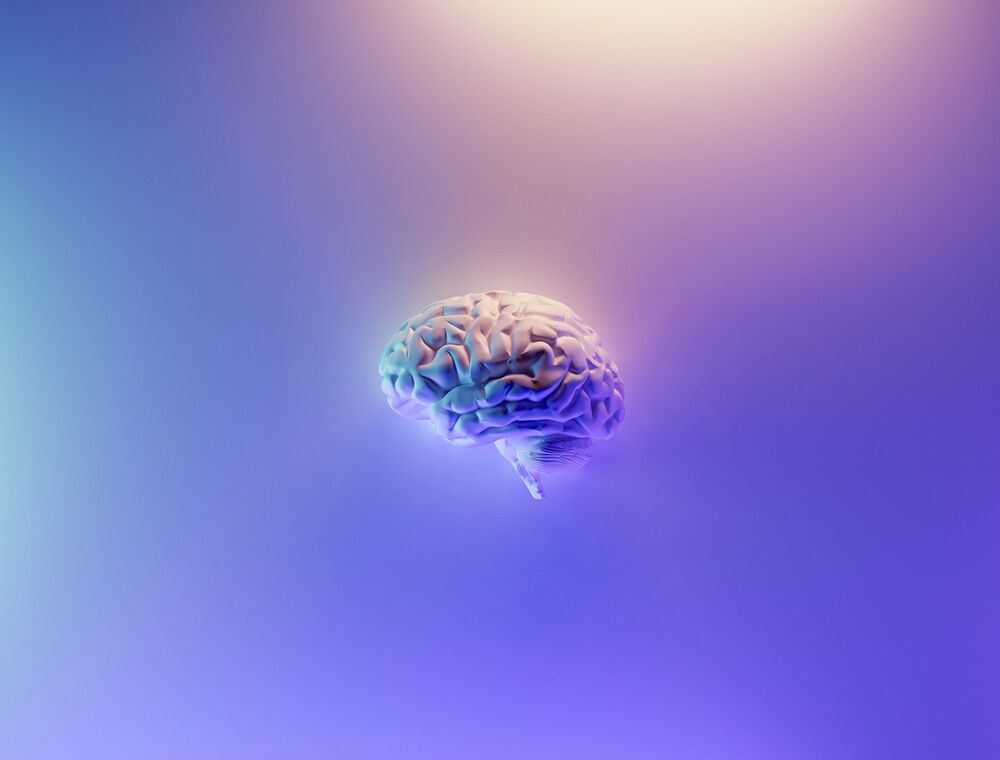
At Boston University, a team of researchers is working to better understand how language and speech is processed in the brain, and how to best rehabilitate people who have lost their ability to communicate due to brain damage caused by a stroke, trauma, or another type of brain injury. This type of language loss is called aphasia, a long-term neurological disorder caused by damage to the part of the brain responsible for language production and processing that impacts over a million people in the US.
“It’s a huge problem,” says Swathi Kiran, director of BU’s Aphasia Research Lab, and College of Health & Rehabilitation Sciences: Sargent College associate dean for research and James and Cecilia Tse Ying Professor in Neurorehabilitation. “It’s something our lab is working to tackle at multiple levels.”
For the last decade, Kiran and her team have studied the brain to see how it changes as people’s language skills improve with speech therapy. More recently, they’ve developed new methods to predict a person’s ability to improve even before they start therapy. In a new paper published in Scientific Reports, Kiran and collaborators at BU and the University of Texas at Austin report they can predict language recovery in Hispanic patients who speak both English and Spanish fluently—a group of aphasia patients particularly at risk of long-term language loss—using sophisticated computer models of the brain. They say the breakthrough could be a game changer for the field of speech therapy and for stroke survivors impacted by aphasia.

TAMPA, Fla. — Satellite operators have cleared a portion of C-band in a key step toward giving the spectrum to U.S. wireless companies in December.
Work has now started on installing filters on ground antennas across the United States, so wireless operators can use the lower 120 MHz of C-band for 5G without interfering with satellite broadcast customers.
Intelsat and SES, the satellite operators with the largest share of the 500 MHz C-band in the U.S., will get more than $2 billion from the Federal Communications Commission (FCC) if they can hand over the 120 MHz swath of frequencies by Dec. 5.
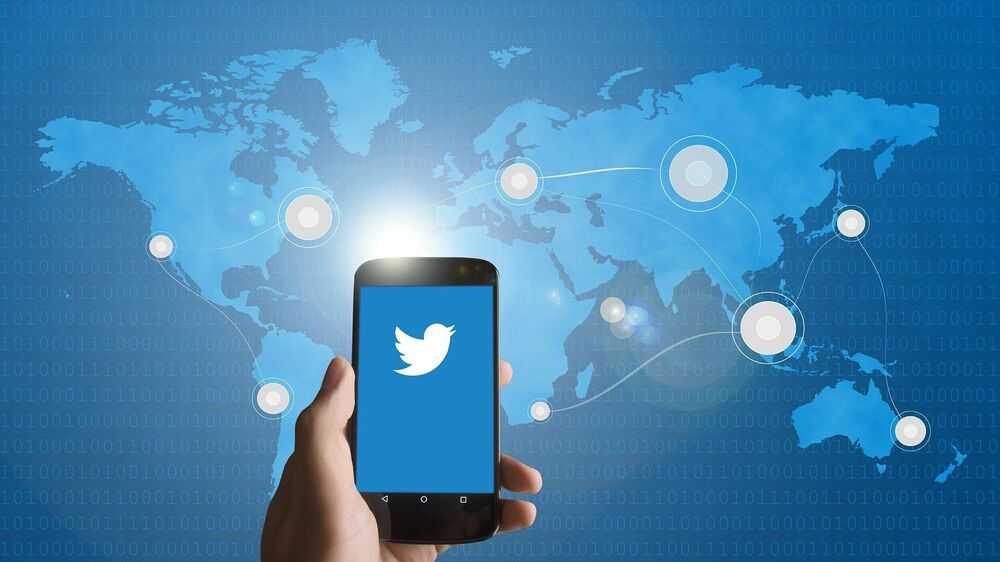
New EPFL research has found that almost half of local Twitter trending topics in Turkey are fake, a scale of manipulation previously unheard of. It also proves for the first time that many trends are created solely by bots due to a vulnerability in Twitter’s Trends algorithm.
Social media has become ubiquitous in our modern, daily lives. It has changed the way that people interact, connecting us in previously unimaginable ways. Yet, where once our social media networks probably consisted of a small circle of friends most of us are now part of much larger communities that can influence what we read, do, and even think.
One influencing mechanism, for example, is “Twitter Trends.” The platform uses an algorithm to determine hashtag-driven topics that become popular at a given point in time, alerting twitter users to the top words, phrases, subjects and popular hashtags globally and locally.
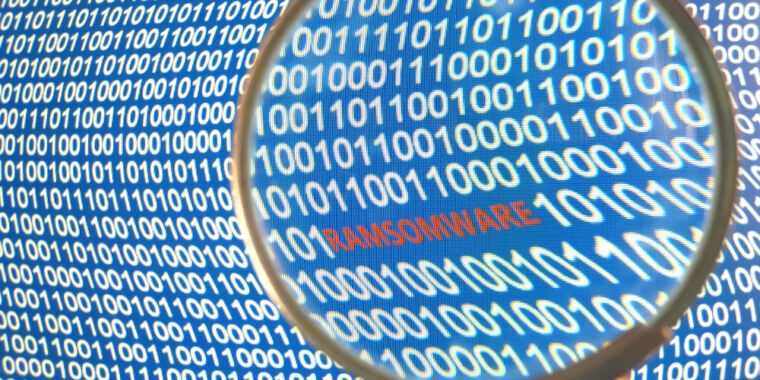
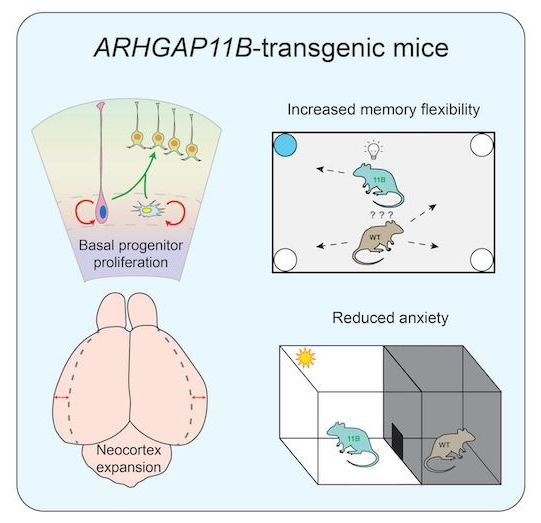
Generation of an ARHGAP11B-transgenic mouse line.
To generate a stable transgenic mouse line that expresses an ARHGAP11B protein, we first determined the temporal and spatial expression patterns of human ARHGAP11A and human ARHGAP11B mRNAs by qPCR of foetal human neocortical tissue at various developmental stages (gestational weeks 12–21; Fig EV1A and B) and by analysing previously published RNA-seq data sets of defined isolated NPC and neuron populations (Florio et al, 2015) (Fig EV1C and D), respectively. As the expression patterns of ARHGAP11A and ARHGAP11B mRNAs were found to be similar, we decided to generate the transgenic mouse line by converting one allele of the mouse Arhgap11a gene into a mutant mouse ARHGAP11B gene (mARHGAP11B), using the CRISPR/Cas9 genome editing technology (for details, see Materials and Methods). In m ARHGAP11B, the 55 nucleotides of Arhgap11a that in humans would be deleted from the ARHGAP11B mRNA by splicing using the new splice-donor site are replaced by the 141 nucleotides encoding the human-specific 47-amino acid sequence plus three nucleotides to generate a translational stop codon (Fig EV1E). Unless indicated otherwise, the ARHGAP11B-transgenic mice obtained (referred to as 11B mice hereafter) were used as heterozygous animals, that is, with one mouse Arhgap11a allele being replaced by m ARHGAP11B. The resulting ARHGAP11B protein will be expressed in developing mouse neocortex under the control of the native mouse Arhgap11a promotor.